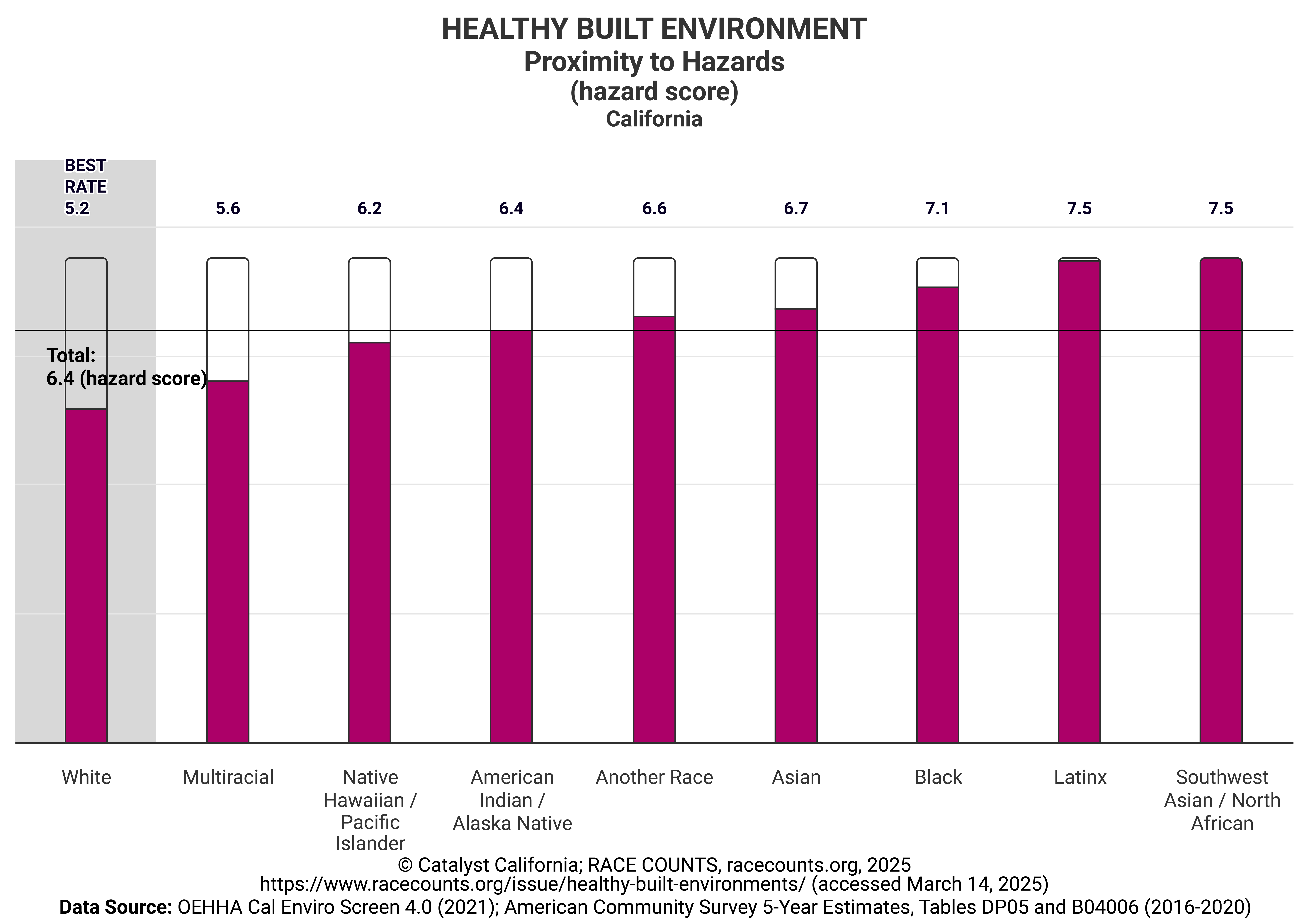Catalyst California developed a groundbreaking report that shines a light on California’s SWANA (Southwest Asian and North African) community, particularly through the lens of five critical issue areas: safety and justice, economic opportunity, health care access, healthy built environment, and housing. Data invisibility is a profound challenge for SWANA communities. This report provides community-informed data that captures the distinct experiences of SWANA communities.

Key findings include:
- Statewide, SWANA residents are the most likely to live close to environmental hazards, and they have the second-highest exposure to contaminated drinking water.

- Statewide, police officers are more likely to stop SWANA residents than the average Californian.
- In Los Angeles County, SWANA residents are the least likely to get help for self-diagnosed mental/emotional or alcohol/drug issues.
- In Orange County, foreign-born SWANA birthing parents are the second most likely to have a baby with low birthweight.
This report emphasizes the value of uplifting community power and ensuring SWANA voices are central to the solutions that affect their lives. This report is a call to action for inclusive data. At the state level, the CA MENA Civil Rights Coalition is fighting for more SWANA data visibility through its #CountMENAInCA campaign. This coalition uses the term MENA (Middle Eastern and North African) vs. SWANA to be consistent with the US Census’ use of the MENA term. With increased data visibility we will see a significant increase in the availability of SWANA data, which will help us to better understand the inequities that the SWANA communities face. We encourage Californians to learn more about the CA MENA Civil Rights Coalition and the #CountMENAInCA campaign.
Given the diversity within California’s SWANA community, we also hope that future data collection efforts go beyond the inclusion of a broad SWANA category to include disaggregated sub-categories and that researchers include a SWANA category in their analysis.